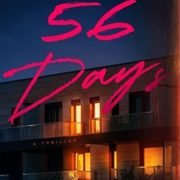You Dreamed of Empires by Álvaro Enrigue
Hernán Cortés meeting Moctezuma in 1519 holds some space in our North American imagination. Two trajectories of human development—long separated by time and distance—crossed in Tenochtitlan, modern-day Mexico City. For many, it symbolizes the beginning of the end, the Old World commencing its dominion in the New World. Imagine the meeting: European steel and gunpowder entering the dominant empire in Mesoamerica. We can almost feel the tension five centuries later.
In You Dreamed of Empires, Álvaro Enrigue has a reimagining for the ages. Yes, it foretells the eventual clash between Spanish conquistadors and a sophisticated city. But most of the novel reads like the most awkward of weekend getaways between two groups of people trying to understand what in the blazes is going on. It’s often comedic, taking the reader on a delightful, almost hallucinogenic flight.
We first find Cortés and a few of his men as dinner guests of Moctezuma’s retinue. One conquistador, never having experienced the deliciousness of chocolate, wants to down the frothy cacao drink that was served. However, the Tenochtitlan priest seated next to him—”his teeth filed sharp as a cat’s”—has him more than a little unnerved. More than anything, it’s the nauseating stench of coagulated blood from the priest’s cape made of human skin.
The fact that the Spaniard is not eating his soup is becoming an issue. Moctezuma’s priests are whispering. Cortés shoots the soldier a reproachful look, like a parent silently scolding a child with a flash of the eyes: Eat! The soldier finally imbibes, prompting a comrade to raise his cup of chocolate at his countrymen, as if to say, “Looking good, Spain.”
Moctezuma leaves others to deal with the Spaniards. He’s deep within the palace complex, self-medicating with psychedelic mushrooms. His depressed malaise is crippling. He’s always having to solidify power and find opposing warriors to sacrifice in the temples. If it’s not one thing, it’s another. And it’s not as though the “testy gods” are appreciative, what with their “blithely doling out droughts, earthquakes, defeats, and invasions.” Now, here are these Spaniards, these “bearded ones.” So Moctezuma lies down. “The Silence his nap demanded was imperial.” All things within the palace become hushed. When he wakes, he rings a royal bell, its peal waking “a whole world” just before he returns to sleep.
The conquistadors are left to wander the impressive and disorienting palace complex. With its many canals, one soldier remarks that it’s like Venice. Another responds, “It’s like Venice, but in hell.” The palace is so silent and empty it feels as though they’re “strolling along the seafloor.” Every day is like a Sunday, says another. Meanwhile, the soldier charged with stabling the horses is having some difficulty in finding suitable accommodations. The problem, of course, is that horses are just as new to the area as the Spanish.
Are they guests, or are they prisoners? They don’t know. There is, nevertheless, the feeling that they are getting away with something. Could they ever get this close to the Spanish crown? Of course not. But look at them now, even if they do feel idiotic marching through this heat and humidity in helmets and breastplates. In fact, when comparing their attire with Moctezuma’s warriors’ headdresses representing their guardian animals, the Spanish crested helmets seem “about as majestic now as a bagpiper’s bonnet.”
Tlilpotonqui, the mayor of Tenochtitlan, at times comes across as an overworked concierge. When Moctezuma beacons, go he must. He’s had it up to here with everyone and everything. We can imagine him trying not to get caught rolling his eyes when has to listen to He Who Looses the Rain of Words and Governs the Songs Lest We Be Like the Flowers and Bees That Last But a Few Days sing—once again —the “interminable” Legend of the Suns.
Excessive rumination is not something that burdens Cortés. We know from history that Cortés was positively awful. And he’s dreadful here too. If there is one thing that burns inside Cortés, it’s his quest for gold. It’s purported that Cortés said to Moctezuma’s representatives, “I and my companions suffer from a disease of the heart which can be cured only with gold.”
Eventually, Moctezuma—fully sated on magic mushrooms—emerges. Here he is, the mighty ruler of the “fear-producing machine” that is Tenochtitlan. And what happens? He and one of his priests hear a T.Rex song from the 1970s and start dancing about.
Absurd? Yes, of course. But there’s Borgesian magical realism in play here, especially toward the end of the novel. If that’s not exactly your literary bag, perhaps it may help to know that this novel is rather svelte, coming in at just over 200 pages. And, really, when capturing the peculiarity of this time and place, magical realism offers its own illuminative qualities.
Cortés and his men weren’t the first Spaniards to reach Mesoamerica. It was already known among many Mesoamericans that these “foreigners were ordinary men, but when there were many of them they became terrifying.” So it’s no wonder that in Enrigue’s incantatory novel, he has Moctezuma asking Cortés to just stop, to join him, and to “dream now.” It all “doesn’t last, like flowers.”
Reviewed by Jason Sullivan











